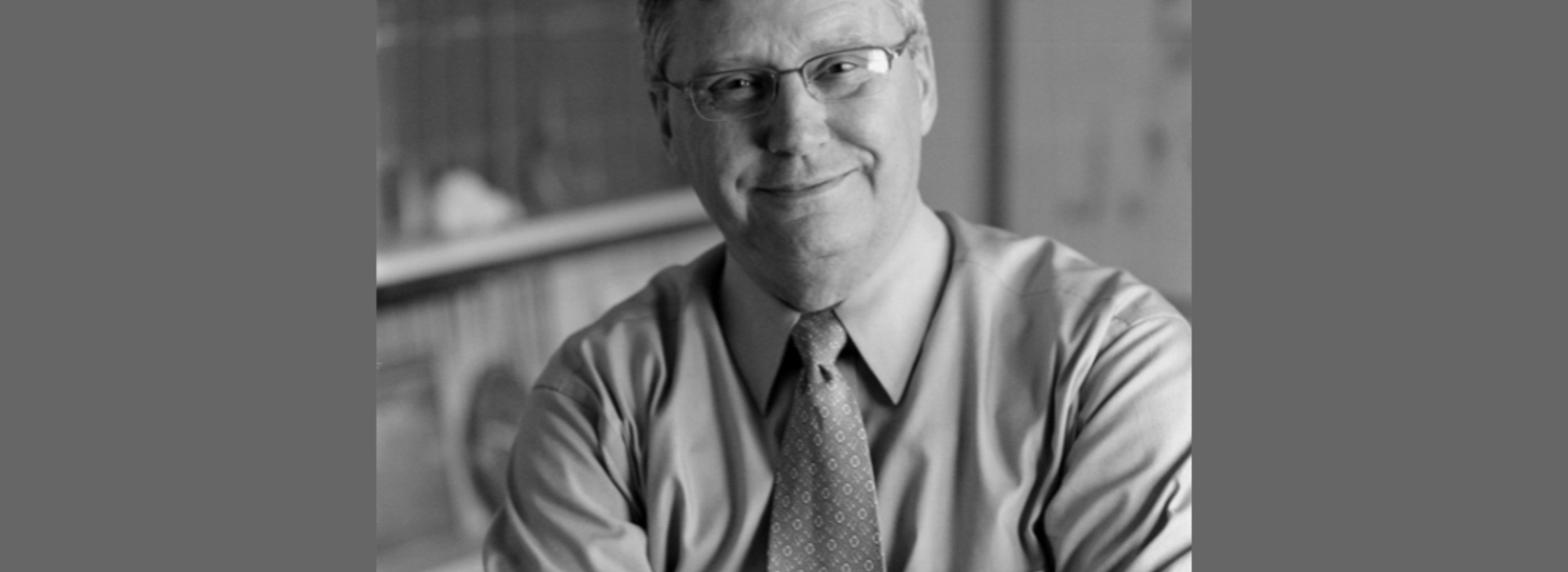
Dr. John Lake Receives Lifetime Achievement Award from the American Society of Transplantation
Dr. John Lake Receives Lifetime Achievement Award from the American Society of Transplantation
AST’s Lifetime Achievement Award is the highest honor that AST bestows, honoring those who have made “significant contributions to the society and to transplantation.”
On June 4, 2023, Dr. John Lake, professor of medicine and surgery at the University of Minnesota Medical School received the American Society of Transplantation’s (AST) Lifetime Achievement Award. Dr. Lake is the first liver specialist to receive the award.
“I was extremely honored,” he emphasizes. “I also feel truly humbled by receiving this, as many have had important influences on my career.”
Before he was an accomplished physician, Dr. Lake was a medical student at the U of M with a very different idea of how his career might look.
“I really didn’t have an idea as to how my career would proceed, but academia was not a consideration,” he recalls. “However, in my second year, I met Charlie Moldow, and he invited me to consider doing some research in his lab. ”
That conversation changed the trajectory of Dr. Lake’s life. Dr. Moldow’s mentorship led Dr. Lake, a lifelong Minnesotan, to become passionate about biomedical research, and ultimately to the University of California, San Francisco’s (UCSF) prestigious internal medicine residency, in a class of talented residents, many of whom would go on to brilliant careers.
“After orientation, I thought, ‘Oh my God! These people are so smart and so accomplished, why am I here?”
However, in just a couple of weeks, Dr. Lake found his footing and discovered that he was just as capable as his fellow residents. He belonged there.
Following a fellowship in gastroenterology, Dr. Lake joined the faculty at UCSF. He was met with an opportunity he describes as “serendipitous” when U of M transplant surgeons Dr. Nancy Ascher and Dr. John Roberts were recruited to UCSF to start a liver transplant program, and someone was needed to organize the medical side of it.
“I looked around at my colleagues, who were all brilliant researchers but not necessarily great clinicians. I was the youngest member of the faculty,” Dr. Lake says. “I said, ‘Oh, I’ll do it!’ And that was literally about the amount of thought that went into that decision.”
Never trained in transplantation, Dr. Lake grew under Dr. Ascher and Dr. Roberts’ mentorship, and together they, with others, established what is widely considered one of the premier liver transplant programs in the world.
“Not only did we enjoy great clinical success, but we also were involved with a number of seminal studies in liver transplantation, many as part of our participation in the NIDDK Liver Transplantation Database.”
In 1998, after 20 years in San Francisco, Dr. Lake returned home to Minnesota, becoming Director of the Division of Gastroenterology and head of the Liver Transplantation Program at the U of M Medical School. These responsibilities alone were more than enough to fill his days, but Dr. Lake’s drive and expertise continued to bring new challenges and opportunities.
In 2000, Dr. Lake became the first hepatologist to be president of the AST. In his one-year tenure, he helped develop the society’s first strategic plan and helped establish the American Journal of Transplantation (AJT), a joint effort with the American Society of Transplant Surgeons. AJT is considered today the premier journal in transplantation. In addition, Dr. Lake has been President of the Organ Procurement and Transplant Network/United Network for Organ Sharing, the chair of the American Board of Internal Medicine Transplant Hepatology committee, Editor of the journal Liver Transplantation and has served on the board of directors of the International Liver Transplantation Society and the American Association for the Study of Liver Disease.
But when asked what he is most proud of in his career, Dr. Lake always thinks of his patients. “I think of one particular patient who is almost 40 years post-transplant who sent me a picture from her 80th birthday party of her surrounded by her kids, grandkids and great grandkids,” Dr. Lake says. “It epitomized what we do in liver transplantation. The reason why we do this is to allow people to be able to succeed in ways they didn’t think possible when they were presented with a terminal disease.”